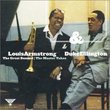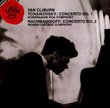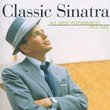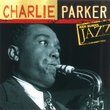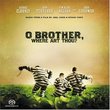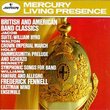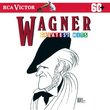| All Artists: Claude Debussy, Ottorino Respighi, Fritz Reiner, Chicago Symphony Orchestra Title: Respighi: Pines of Rome, etc Members Wishing: 0 Total Copies: 0 Label: RCA Release Date: 4/11/1995 Genre: Classical Styles: Forms & Genres, Theatrical, Incidental & Program Music, Historical Periods, Modern, 20th, & 21st Century, Symphonies Number of Discs: 1 SwapaCD Credits: 1 UPC: 090266807925 |
Search - Claude Debussy, Ottorino Respighi, Fritz Reiner :: Respighi: Pines of Rome, etc
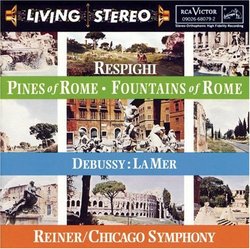 | Claude Debussy, Ottorino Respighi, Fritz Reiner Respighi: Pines of Rome, etc Genre: Classical
Whichever other Respighi tone poem recordings you ultimately purchase, you MUST own this one. Since the early ?60s it has been the standard by which all others have been judged, and in terms of both sound and performance... more » |
Larger Image |
CD DetailsSynopsis
Amazon.com Whichever other Respighi tone poem recordings you ultimately purchase, you MUST own this one. Since the early ?60s it has been the standard by which all others have been judged, and in terms of both sound and performance, it has never really been surpassed. The final march of Pines is simply incredible: thundering bass drum, crashing cymbals and gongs, bellowing brass--nobody since has brought the whole thing off with the same combination of excitement and discipline. The performance of La Mer has similar virtues. Fritz Reiner was a podium tyrant, but a tremendous musician all the same. This may be his finest recording. --David Hurwitz Similar CDs
Similarly Requested CDs
|
CD ReviewsI want to be buried with this CD! Brian | Ohio, United States | 07/20/2003 (5 out of 5 stars) "An NPR program once listed the best recordings of Respighi's works. The announcer made it a point to slam Respighi's compositions in every way possible (he even said that he found it fitting that the word "pig" was in Respighi!) but when all was said and done, he still ranked this recording as the undisputed master. I have owned several CDs of "Pines" and have slowly gotten rid of all but this one. NO recording of that piece has ever come close to Reiner's. The offstage brass are actually located on risers around the group and sound very "offstage" when they're supposed to be, but at the end of "Pines of the Appian Way", they are blazing at a volume that can compete with the brass on the stage. The intensity of the brass sound at ridiculous volume without sounding distored or harsh in any way is amazing-especially given the "prehistoric" techniques used in the recording. The string sound is beautiful throughout the range and the basses are thunderous when they need to be. In the fourth mvt, there are 2 spots in particular that are NEVER heard on other recordings. At 2:02, there is a key change to Bb. It is ushered in by the organ on a pedal Bb. It is marked pp I think, but when listening on good speakers or headphones in this recording, that note wraps around you and pins you down. On most recordings it is inaudible.Another moment is at 3:34. There is an A in the second trumpet that is never heard for whatever reason, but on this version it is so intense that it will part your hair. There is no subtleness to the finale in this one. It is pure, raw power. I have performed this piece several times and while nothing can ever compare to being in the middle of this tidal wave of sounds all around you, this CD (at a proper, near-deafening level) can evoke those same sensations.The Catacomb movement is frightening. The offstage trumpet solo is as gorgeous as they come with perfect muted string accompaniment. When the character changes right after the solo, the low brass hold down a beautiful pp with the subtle tam tam hits making it all the more eerie. Then...THE crescendo. The trombones take over with a sound unlike just about anything you'll hear on record. The strings are never buried either. Much of what makes this such a phenominal recording is the perfect balances that bring life to Respighi's brilliant coloration. Remember, this is before multitracking. They played and the mics picked up what was played. God, orchestras should sound this good today." Classic Respighi Brian | 03/25/1999 (5 out of 5 stars) "This venerable 1959/60 recording is still the definitive and most exciting performance of the two Respighi works, and the Debussy rivals them. The world may never again hear the like of Reiner's tightly rehearsed Chicago Symphony. The awesome brass section led by Adolph Herseth (trumpet) and Arnold Jacobs (tuba) was unrivaled then and still is. Sadly, most have passed into memory, but they were in their prime on this recording. Herseth's off-stage solo in the second section of the "Pines" is goosebump material, as is the wall of sound generated by three trombonists who could sound like ten. Don't hesitate to buy it because of its age. RCA's recorded sound, if short of the quality of modern day audiophile labels, should still be the envy of "big name" recording companies who haven't yet figured out that a forest of microphones, umpteen channel mixers, and over-eager recording engineers destroy, not enhance, recorded sound. Best of all, this CSO classic was recorded in the old Orchestra Hall before several "renovations" destroyed those once magnificent acoustics. Only so often does one encounter true greatness. You can find it here." Buy this CD! Dave | Hoffman Estates, IL USA | 12/04/1999 (5 out of 5 stars) "The wonderful Chicago Symphony played this like their lives depended on it, which probably wasn't far from the truth with Fritz Reiner on the podium. 'La mer' sounds great in this recording, but I was shocked when I listened to the two Respighi pieces. In particular, the 'Pines of Rome' sounds amazing. I've heard the piece before, but not like this. The CSO brass plays it with an unheard of level of precision and splendor. If you like this piece, definitely pick up this CD; you won't regret it. In addition, the sound quality itself is pretty impressive for a recording made 40 years ago on analog equipment."
|

 Track Listings (11) - Disc #1
Track Listings (11) - Disc #1

